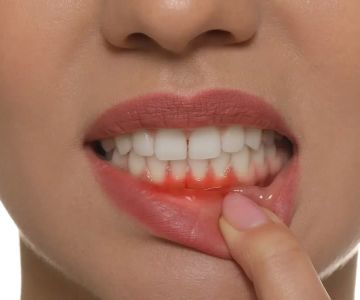Are Gum Problems Prone to Recurring? How Can Long-Term Oral Health Be Maintained?
Gum problems, including gingivitis and periodontitis, are among the most prevalent dental issues faced by adults in the United States. Despite routine dental care and treatment, many individuals find that their gum problems tend to recur. This repetitive cycle can be frustrating, impacting not only oral health but general well-being. Understanding the propensity for gum issues to return is key to devising a strategy for long-term maintenance of oral health. In this article, we delve into why gum issues recur and explore effective strategies to maintain oral health in the long term.
Understanding the Causes of Recurring Gum Problems
The recurrence of gum problems often stems from a variety of underlying causes. The most significant factor is poor oral hygiene, which leads to the buildup of plaque—a sticky, bacteria-laden film on the teeth that ultimately irritates the gums. According to the American Dental Association, almost half of American adults show signs of gum disease precipitated by plaque accumulation. Other contributing factors include smoking, diabetes, hormonal changes, medications, and genetic predispositions. These elements weaken the gums’ resilience, making them more susceptible to infection and inflammation.
Furthermore, lifestyle habits play a crucial role. Irregular brushing and flossing, or using inappropriate techniques, can exacerbate gum issues. It's important to utilize proper dental tools and techniques recommended by professionals, such as the use of an electric toothbrush and dental floss to effectively remove plaque along the gum line.
The Role of Genetics and Systemic Conditions
Genetics also influences susceptibility to gum problems. Research indicates that individuals with a family history of gum disease may be more prone to developing gum issues despite maintaining good oral hygiene. Additionally, systemic conditions like diabetes can complicate oral health. High blood sugar levels can impair the body’s ability to fight bacterial infections, thereby increasing the risk of developing gum disease. As highlighted by several studies, people with diabetes are more likely to experience periodontal infections, making ongoing monitoring essential.
It's essential for those with systemic conditions to manage their overall health rigorously to prevent oral complications. Regular dental visits and open communication with healthcare providers can help create personalized plans to keep gum issues at bay.
Long-Term Strategies for Maintaining Oral Health
To prevent the recurrence of gum problems and ensure long-term oral health, a combination of professional care and personal habits is necessary. Regular dental check-ups, at least twice a year, are crucial for early detection and management of potential issues. Additionally, professional cleanings can help remove tartar that is not easily addressed by regular brushing and flossing.
At home, maintaining a robust oral care routine is paramount. Brushing at least twice a day with fluoride toothpaste, flossing daily, and using an antiseptic mouthwash can significantly reduce the risk of plaque buildup. Incorporating a healthy diet rich in vitamins, minerals, and antioxidants also supports gum health. Foods such as leafy greens, crunchy vegetables, and nuts can aid in reducing inflammation and increase resistance to periodontal disease.
Exploring Advanced Treatments and Interventions
In cases where lifestyle changes and standard dental care are insufficient, advanced treatments might be necessary. Treatments such as scaling and root planing, laser therapy, or surgical interventions can be utilized to manage severe gum issues. Such interventions are tailored to the individual needs of patients, particularly for those experiencing chronic or advanced gum disease.
Modern dental technology offers a range of interventions that provide deeper cleaning and more effective management of bacterial infections. It's important to discuss these options with your dental professional to find a treatment plan that best suits your needs, ensuring the long-term health of your gums.
Conclusion: Prioritizing Oral Health to Prevent Gum Problems
In conclusion, while gum problems can be prone to recurrence due to various factors like poor oral hygiene, genetics, and systemic health issues, taking preventive measures is possible. Prioritizing regular dental check-ups, maintaining a comprehensive oral care routine, and making necessary lifestyle changes are fundamental steps toward sustaining long-term oral health. By addressing these critical areas, individuals can break the cycle of recurring gum issues.
Proactive measures combined with professional guidance pave the way for healthier gums and overall improved health. Start today by reassessing your oral care practices, consulting with dental professionals, and visiting Dentistry Toothtruth for more resources and advice on tackling gum problems effectively.







 Dental Dreams4.0 (967 review)
Dental Dreams4.0 (967 review) Glenn Fortner DDS4.0 (237 review)
Glenn Fortner DDS4.0 (237 review) One Stop Implants3.0 (39 review)
One Stop Implants3.0 (39 review) Southside Community Health Services4.0 (186 review)
Southside Community Health Services4.0 (186 review) Smile On Nashville4.0 (259 review)
Smile On Nashville4.0 (259 review) Contemporary Dental Implant Centre4.0 (79 review)
Contemporary Dental Implant Centre4.0 (79 review) The Importance of Oral Health Education During Pregnancy for a Healthy Pregnancy
The Importance of Oral Health Education During Pregnancy for a Healthy Pregnancy Best Tips for Brushing Your Teeth Properly for Healthy Gums: Essential Techniques for Oral Health
Best Tips for Brushing Your Teeth Properly for Healthy Gums: Essential Techniques for Oral Health Why Skipping Dental Checkups Can Lead to Bigger Oral Health Problems
Why Skipping Dental Checkups Can Lead to Bigger Oral Health Problems Advantages of Porcelain Dental Restorations
Advantages of Porcelain Dental Restorations How Can Diabetes Cause Tooth and Gum Problems? Preventing and Managing Oral Health Issues
How Can Diabetes Cause Tooth and Gum Problems? Preventing and Managing Oral Health Issues Healthy Habits for Promoting Good Oral Health and Hygiene: Tips for a Healthy Smile
Healthy Habits for Promoting Good Oral Health and Hygiene: Tips for a Healthy Smile